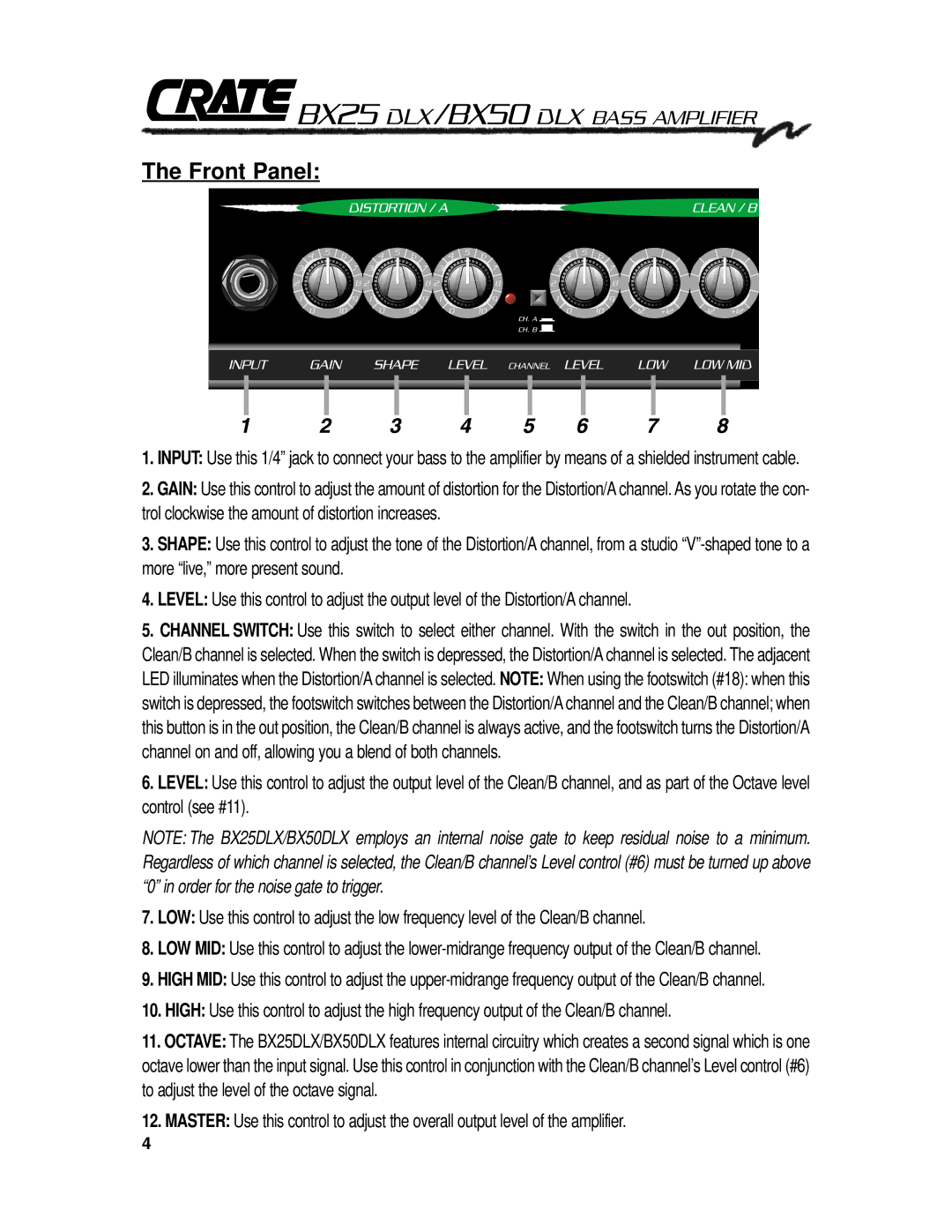
![]()
![]()
![]()
![]()
![]()
![]()
![]() BASS AMPLIFIER
BASS AMPLIFIER
The Front Panel:
1.INPUT: Use this 1/4” jack to connect your bass to the amplifier by means of a shielded instrument cable.
2.GAIN: Use this control to adjust the amount of distortion for the Distortion/A channel. As you rotate the con- trol clockwise the amount of distortion increases.
3.SHAPE: Use this control to adjust the tone of the Distortion/A channel, from a studio
4.LEVEL: Use this control to adjust the output level of the Distortion/A channel.
5.CHANNEL SWITCH: Use this switch to select either channel. With the switch in the out position, the Clean/B channel is selected. When the switch is depressed, the Distortion/Achannel is selected. The adjacent LED illuminates when the Distortion/Achannel is selected. NOTE: When using the footswitch (#18): when this switch is depressed, the footswitch switches between the Distortion/Achannel and the Clean/B channel; when this button is in the out position, the Clean/B channel is always active, and the footswitch turns the Distortion/A channel on and off, allowing you a blend of both channels.
6.LEVEL: Use this control to adjust the output level of the Clean/B channel, and as part of the Octave level control (see #11).
NOTE: The BX25DLX/BX50DLX employs an internal noise gate to keep residual noise to a minimum. Regardless of which channel is selected, the Clean/B channel’s Level control (#6) must be turned up above “0” in order for the noise gate to trigger.
7.LOW: Use this control to adjust the low frequency level of the Clean/B channel.
8.LOW MID: Use this control to adjust the
9.HIGH MID: Use this control to adjust the
10.HIGH: Use this control to adjust the high frequency output of the Clean/B channel.
11.OCTAVE: The BX25DLX/BX50DLX features internal circuitry which creates a second signal which is one octave lower than the input signal. Use this control in conjunction with the Clean/B channel’s Level control (#6) to adjust the level of the octave signal.
12.MASTER: Use this control to adjust the overall output level of the amplifier.
4
